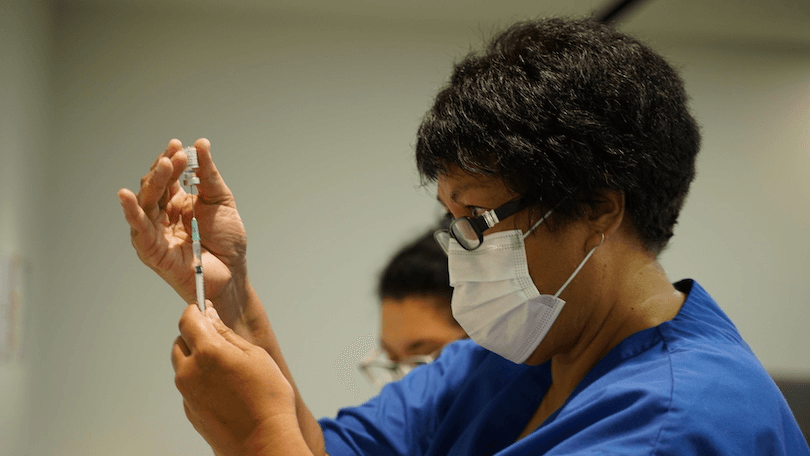Leaders and public health experts across South Auckland are welcoming the decision to prioritise at-risk residents for the vaccine roll-out, but for some it doesn’t go far enough.
“A little disappointing” and “not ideal” is how some Pacific public health experts are describing the government’s vaccine announcement to limit the prioritising of South Aucklanders to those over 65 or with an underlying health issue.
On Wednesday, the government revealed details of the Covid-19 vaccine roll-out plan, specifying which groups will be able to access the Pfizer vaccine ahead of the general population.
Dr Collin Tukuitonga, associate dean Pacific at the University of Auckland’s Faculty of Medical and Health Sciences, said his “ideal” scenario would have been to immunise all Counties Manukau District Health Board residents first, but it’s still “fantastic” the roll-out is happening.
“Those in South Auckland who don’t meet the requirements, they will be feeling a little hard done by I guess, but I know [the government] have done this, because the supply is still limited, and so by getting to the most at-risk with a limited supply. I think they are being pragmatic,” he said.
Research and consultancy group Moana Research focuses on public health issues facing Pacific peoples. The organisation’s managing director, Jacinta Fa’alili-Fidow, said given the number of outbreaks in the city’s south, rolling out the vaccine wider would have been preferable.
“I do think it’s a little bit disappointing,” she said. “Here in South Auckland we have many essential workers and we’re a communal people, we socialise and get out a lot, we attend gatherings and large events, so it would have been ideal to have that roll-out for all of South Auckland.”
She’s also aware there’s a lot of misinformation undermining the immunisation programme.
“Proportionally more people in South Auckland will be eligible anyway, but there will also be instances where people won’t realise they are vulnerable and should be getting the vaccination,” she added.
“By delaying it for South Aucklanders, it removes the perception that South Auckland was going to be used as a guinea pig. But in general people are feeling frustrated and overwhelmed by Covid and they are also generally keen to be compliant to protect their families.
“That’s why the messaging and communication of information related to the vaccinations is so important.”
Auckland councilor Daniel Newman said his greatest concern is whether the logistics are in place to deliver it quickly through his region.
“The challenge will be getting information out to those target population groups, ensuring the supply chain is in place to guarantee access, and removing other barriers to access so that our residents can be vaccinated.”
The Manurewa-Papakura ward councillor said there needs to be greater coordination between Auckland Council, the Ministry of Health and DHBs to ensure South Auckland residents are adequately informed.
“Hand-in-hand with the vaccination programme, ensuring people have timely and accurate information is essential. This will be a major logistical exercise and community outreach is important,” he said.
South Auckland’s Māori leaders are pleased by the government’s announcement and are imploring their people to put their anxieties to one side.
Tony Kake, chair of Papakura Marae, said the government’s decision “aligns to tikanga”.
“We at Papakura Marae tautoko the announcement. It keeps everyone healthy and safe and we’ll lead by example as Māori providers in the south by getting our staff and encouraging our whānau to get vaccinated as soon as possible.”
Te Puea Memorial Marae chair Huri Dennis said: “Right now it is the first line of protection for us as a people in terms of trying to get back to the new normal. I’m pleased that the Whānau Ora Commissioning Agency, Turiki Healthcare and our Māori providers are sitting in the front of the delivery of our vaccines [and] I think this will help lower some of the anxieties.”
Dr Tukuitonga said having Māori and Pacific providers leading the roll-out is a good move and he hopes people don’t hold back.
“I’ve been in medicine for 40 years and this vaccine has a very high protective efficacy, and there’s been 200 million doses used around the world and we’ve had very little by way of side effects, so I would encourage people to get the vaccine when the time comes.”
